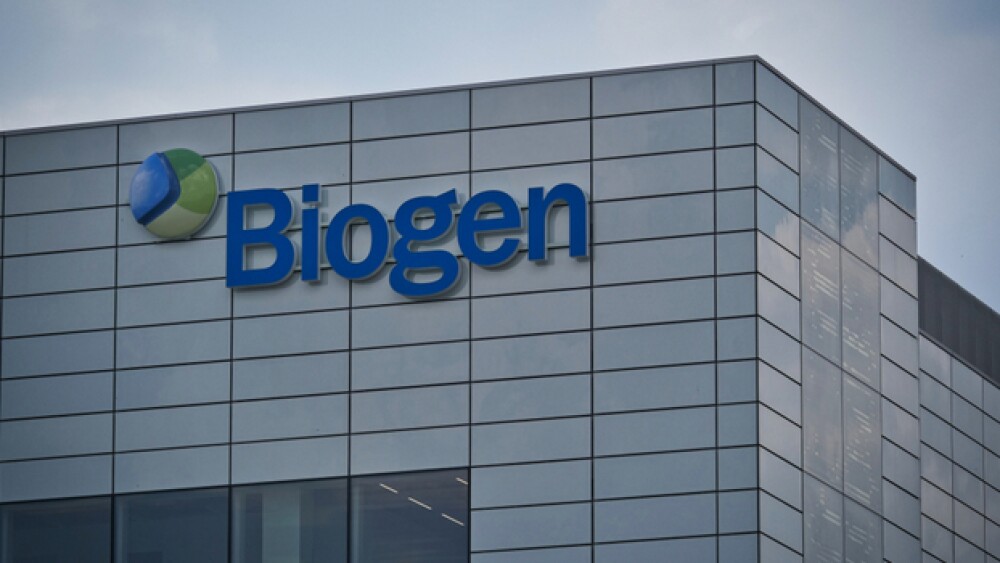The U.S. Food and Drug Administration granted approval of Biogen’s aducanumab for the treatment of Alzheimer’s disease.
PictureDesignSwiss/Shutterstock
The U.S. Food and Drug Administration (FDA) granted approval of Biogen’s aducanumab for the treatment of Alzheimer’s disease. It is the first drug approved that treats an underlying cause of the disease. It will be marketed under the trade name Aduhelm.
“We are well-aware of the attention surrounding this approval,” stated Patrizia Cavazzoni, director of the FDA’s Center for Drug Evaluation and Research. “We understand that Aduhelm has garnered the attention of the press, the Alzheimer’s patient community, our elected officials, and other interested shareholders. With a treatment for a serious, life-threatening disease in the balance, it makes sense that so many people were following the outcome of this review.”
The agency stated that it determined there was “substantial evidence” Aduhelm helped patients. “As a result of FDA’s approval of Aduhelm, patients with Alzheimer’s disease have an important and critical new treatment to help combat this disease.”
Biogen and its collaboration partner Eisai abandoned the drug program in March 2019 after a futility analysis said the drug would not hit its endpoints. Then, just a few months later, the companies reported after a full analysis and conversations with the FDA, one of the trials, the Phase III EMERGE study, had hit the primary endpoint at the highest dose, demonstrating a significant decrease in clinical decline. They presented the data in December of that year, then submitted it for approval to the FDA with an initial target action date in March 2021. The agency requested additional information, which was classified as a Major Amendment and a new PDUFA date of June 7 was set.
The agency’s FDA’s Peripheral and Central Nervous System Drugs Advisory Committee voted against recommending the drug in November 2020.
The data presented was complex and somewhat controversial. Many researchers and physicians that treat Alzheimer’s patients, as well as the patients and their families, are generally hopeful. Many other researchers and physicians are very skeptical of the data, feeling that Biogen has not proven the drug’s efficacy and that its risk-benefit profile is unconvincing.
For example, Jason Karlawish, professor of medicine, medical ethics and health policy, and neurology at the University of Pennsylvania’s Perelman School of Medicine, and co-director of the Penn Memory Center, wrote an op-ed in STAT titled, “If the FDA approves Biogen’s Alzheimer’s treatment, I won’t prescribe it.”
“If it gets the green light, I can’t see myself recommending it to my patients,” Karlawish wrote. “Colleagues of mine in the Alzheimer’s sphere are also reluctant about approving aducanumab. Why? Biogen hasn’t made a convincing case for it.”
On the other hand, Stephen Salloway, director of neurology and the Memory and Aging Program at Butler Hospital in Providence and professor at Brown University, treated patients as part of the clinical trial. He said he was impressed with the drug. He treated 17 patients and 10 did not decline while on the therapy. “This is the first time in more than 100 trials for Alzheimer’s that we noticed this type of clinical effect,” he told The Boston Globe.
The Institute for Clinical and Economic Review (ICER), a pricing watchdog, issued a report criticizing aducanumab for insufficient efficacy and recommended a low price point of about $2500 and $8300 per patient per year, if it is approved. Most analysts have projected a price of about $50,000 per patient per year, with annual projected sales of $4.8 billion by 2026.
On the other hand, at the FDA panel discussion, George Vradenburg, the chairman and co-founder of UsAgainstAlzheimer’s, testified, saying, “If we wait for the perfect drug or perfect data, we will descend further into the grip of this awful disease…. People staring into the abyss of Alzheimer’s deserve no less. I joined this battle against Alzheimer’s because my family has experienced three generations of Alzheimer’s over 40 years. At this pace, my children and grandchildren are in the Alzheimer’s bulls-eyes.”
Joanne Pike, chief strategy officer at the Alzheimer’s Association, recently told Reuters, “We support a decision for approval of aducanumab…. It ushers in a new era of potential treatments.”
Alzheimer’s is the sixth leading cause of death in the U.S., what Billy Dunn, director of neurology products evaluation at the FDA, said at the November advisory committee meeting, was “a profound and enormous unmet medical need.”





